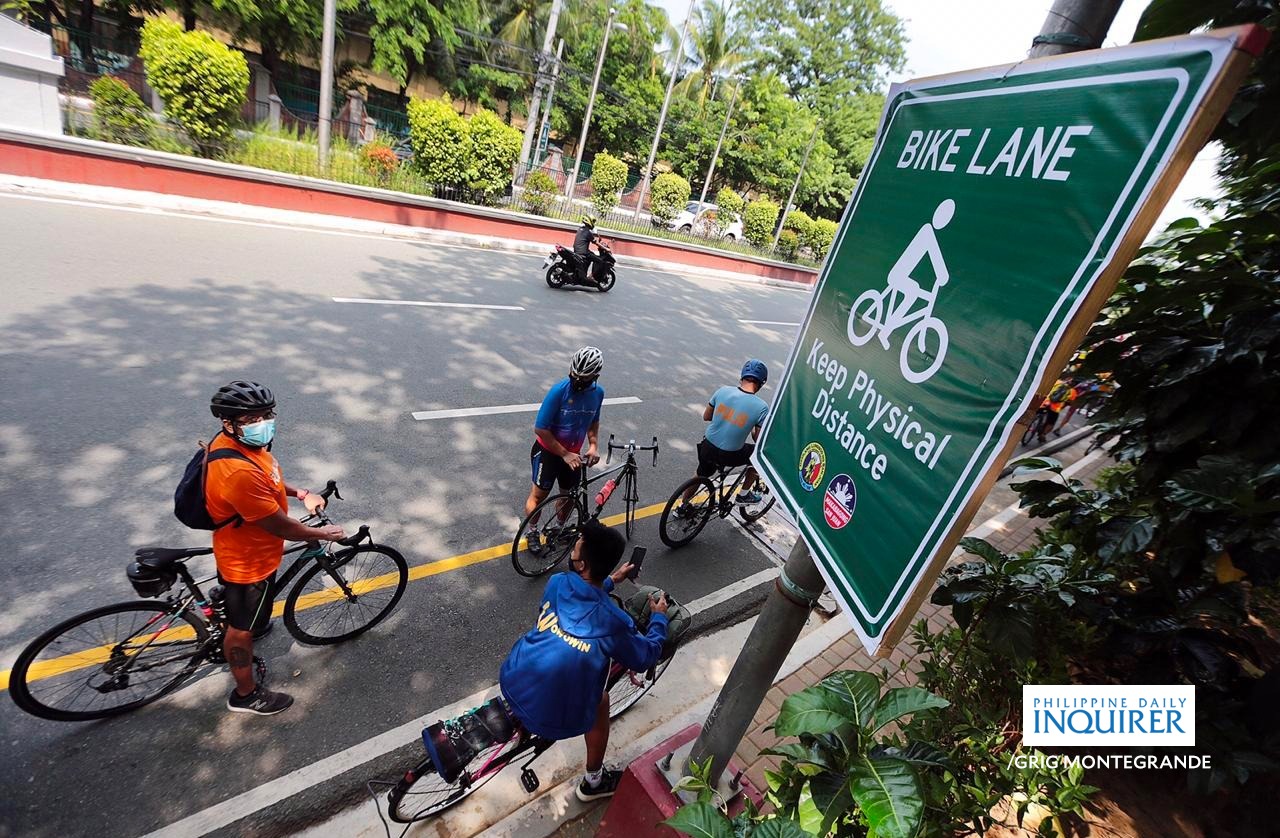House panel OKs bill creating bike lanes, slow streets

LOOK: San Juan City Mayor Francis Zamora leads other bikers in using the new pop-up bike lanes in the city as part of the new normal on World Bike Day during its launching on Wednesday June 3. The bike lanes were set up in cooperation with Edsa Evolution to protect frontliners and San Juan residents who have gone back to work using bicycles as means of transport.-INQUIRER/GRIG C. MONTEGRANDE
MANILA, Philippines — The House committee on transportation approved Wednesday a consolidated bill pushing for the establishment of a network of bicycle lanes and slow streets in the country.
During its hybrid meeting, the panel moved for the consolidation and subsequent approval of House Bills No. 8598, 8688, and 8697. The motion was adopted by the committee’s members.
Taguig City Rep. Ma. Laarni Cayetano, who sponsored House Bill No. 8598, said the coronavirus pandemic highlighted gaps in society—including in the transportation sector.
Cayetano said her bill seeks to establish a “safe pathway for non-motorized vehicles” which includes bicycle lanes and slow streets. Slow streets reduce motorized vehicle traffic and open spaces for cyclists and pedestrians.
Citing a 2015 study of the Japan International Cooperation Agency (JICA) and the then Department of Transportation and Communications, Cayetano said that in Metro Manila and its surrounding provinces, only 11.5 percent of households are car-owners.
Article continues after this advertisement“This goes to show that majority of the population are reliant on public transportation. Hence, when the enhanced community quarantine halted the operations of all types of public transport, this resulted in a struggle for frontliners and all Filipinos who needed to go to work…” Cayetano said.
Article continues after this advertisement“It is imperative for us to consider alternative modes of transportation which are efficient, safe, and convenient amid the pandemic,” she added.
The Senate has earlier approved their own version of the bill seeking the establishment of “safe pathways” for those who prefer to walk, bike, or use other non-motorized vehicles to their destinations.
The bill mandates the Department of Transportation (DOTr) and the Department of Public Works and Highways (DPWH), in coordination with local government units (LGUs), to identify and create a network of bicycle lanes connecting to essential destinations such as workplaces, medical facilities or groceries, schools, banks, and other similar places.